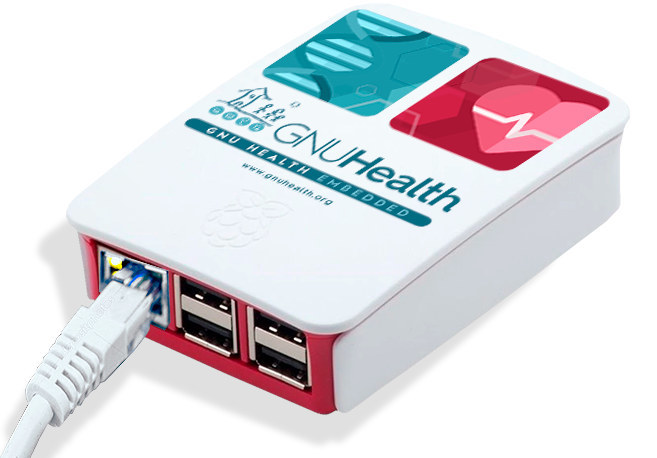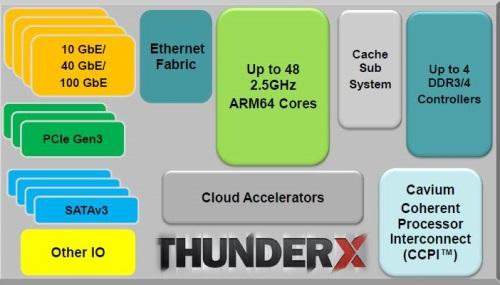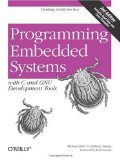GNU Health (GH) is a free and open-source Health and Hospital Information System (HIS) that can manage the internal processes of a health institution, such as financial management, electronic medical records (EMR), stock & pharmacies or laboratories (LIMS). It is already used in various hospitals, health centers, and medical research facilities in various countries, most developing countries, across the world. The program would normally be installed on x86 servers running Linux or FreeBSD, but there’s also a version for Raspberry Pi 3 and 4 based on openSUSE called GNU Health Embedded, and work is being done to port the solution to Olimex OlinuXino SBC’s. Contrary to what the photo above implies, GNU Solidario does not sell the hardware pre-loaded with GNU Health Embedded, but you can download it for free from their servers, and if you want to support the project you could always make a donation. As I understand […]
GNU Complexity Command Line Tool Measures Complexity of C Code
GNU complexity is a command line tool that computes a complexity measure of C source code, similar to pmccabe, but with a different method of calculating results with short functions scoring lower than pmccabe and highly nested functionality can score considerably higher. It can be useful to locate suspicious areas in unfamiliar code, get an idea of the efforts required to either understand the code or test it, or self-assess your own code. Bruce Korb, the maintainer, has just released version 1.5 with some bug fixes, so I’ve given it a quick try. We’ll need to get the code, build and install it first:
|
1 2 3 4 5 6 |
wget ftp://ftp.gnu.org/gnu/complexity/complexity-1.5.tar.gz tar xvf complexity-1.5.tar.gz cd complexity-1.5 ./configure make -j8 sudo make install |
The user’s manual provides some insights and an example, which I’ve used against a directory in Linux source code:
|
1 2 3 4 5 6 7 8 9 10 11 12 13 14 15 16 17 18 19 20 21 22 23 24 25 26 27 28 29 30 31 32 33 34 35 36 37 38 39 40 41 42 43 44 45 46 47 48 49 50 51 52 53 54 55 56 57 58 59 60 61 62 63 64 65 66 67 68 69 70 71 72 73 74 75 76 77 78 79 80 81 82 83 84 85 86 |
cd ~/edev/linux/arch/arm64/kernel complexity --histogram --score --thresh=3 `ls *.c` procedure fpsimd_pm_init in fpsimd.c ended before final close bracket procedure fpsimd_hotplug_init in fpsimd.c ended before final close bracket Complexity Scores Score | ln-ct | nc-lns| file-name(line): proc-name 3 28 17 perf_callchain.c(111): perf_callchain_user 3 20 18 insn.c(337): aarch64_insn_decode_immediate 3 21 19 io.c(27): __memcpy_fromio 3 21 19 io.c(56): __memcpy_toio 3 30 19 cpufeature.c(860): verify_local_cpu_capabilities 3 21 20 module.c(74): reloc_data 3 24 20 setup.c(199): request_standard_resources 3 27 20 alternative.c(89): __apply_alternatives 3 29 20 cpu_ops.c(53): cpu_read_enable_method 3 29 24 insn.c(362): aarch64_insn_encode_immediate 3 31 24 ptrace.c(76): ptrace_hbptriggered 3 54 24 kgdb.c(159): kgdb_arch_handle_exception 3 28 25 armv8_deprecated.c(145): update_insn_emulation_mode 3 32 25 debug-monitors.c(334): aarch32_break_handler 3 35 26 smp.c(413): acpi_map_gic_cpu_interface 3 42 26 process.c(249): copy_thread 3 58 27 perf_event.c(572): armv8pmu_handle_irq 3 32 28 hw_breakpoint.c(544): toggle_bp_registers 3 34 28 insn.c(1019): aarch64_insn_gen_data3 3 34 29 insn.c(519): aarch64_insn_gen_comp_branch_imm 3 56 29 setup.c(121): smp_build_mpidr_hash 3 35 30 insn.c(397): aarch64_insn_encode_register 3 42 31 signal.c(167): setup_sigframe 3 37 33 hw_breakpoint.c(349): arch_bp_generic_fields 3 49 34 setup.c(232): relocate_initrd 3 41 35 insn.c(708): aarch64_insn_gen_add_sub_imm 3 63 38 setup.c(292): setup_arch 3 109 57 cpufeature.c(469): update_cpu_features 4 46 26 smp.c(477): of_parse_and_init_cpus 4 38 31 traps.c(335): call_undef_hook 4 36 32 insn.c(924): aarch64_insn_gen_data1 4 49 33 armv8_deprecated.c(464): cp15barrier_handler 4 71 34 stacktrace.c(41): unwind_frame 4 42 35 ptrace.c(437): hw_break_set 4 42 37 insn.c(968): aarch64_insn_gen_data2 4 49 37 smp.c(708): handle_IPI 4 58 37 hw_breakpoint.c(231): hw_breakpoint_control 4 47 40 insn.c(757): aarch64_insn_gen_bitfield 4 54 44 ptrace.c(376): hw_break_get 4 60 44 armv8_deprecated.c(378): swp_handler 5 28 27 hw_breakpoint.c(198): hw_breakpoint_slot_setup 5 45 35 ptrace.c(672): compat_gpr_get 5 50 36 hw_breakpoint.c(764): reinstall_suspended_bps 5 59 37 hw_breakpoint.c(476): arch_validate_hwbkpt_settings 5 48 42 insn.c(811): aarch64_insn_gen_movewide 5 49 42 insn.c(868): aarch64_insn_gen_add_sub_shifted_reg 5 60 44 psci.c(36): cpu_psci_cpu_init_idle 5 49 46 insn.c(277): aarch64_get_imm_shift_mask 5 95 89 asm-offsets.c(34): main 6 34 32 cpufeature.c(792): __raw_read_system_reg 6 67 37 signal.c(332): do_signal 6 43 39 topology.c(50): parse_core 6 54 41 ptrace.c(724): compat_gpr_set 6 74 44 traps.c(147): dump_backtrace 6 55 49 insn.c(646): aarch64_insn_gen_load_store_pair 6 76 49 hw_breakpoint.c(393): arch_build_bp_info 6 71 52 hw_breakpoint.c(584): breakpoint_handler 6 61 54 insn.c(1062): aarch64_insn_gen_logical_shifted_reg 6 73 59 ptrace.c(1120): compat_arch_ptrace 8 50 30 cpuinfo.c(102): c_show 8 64 50 topology.c(97): parse_cluster 8 97 65 hw_breakpoint.c(660): watchpoint_handler 9 44 32 traps.c(59): dump_mem 11 71 55 signal32.c(129): copy_siginfo_to_user32 31 198 172 module.c(184): apply_relocate_add Complexity Histogram Score-Range Lin-Ct 0-9 2206 ************************************************************ 10-19 55 * 20-29 0 30-39 172 ***** Scored procedure ct: 65 Non-comment line ct: 2433 Average line score: 7 25%-ile score: 3 (75% in higher score procs) 50%-ile score: 5 (half in higher score procs) 75%-ile score: 6 (25% in higher score procs) Highest score: 31 (apply_relocate_add() in module.c) |
The resulting table shows six information per line: the computed score, the number of lines between the opening and closing curly braces (ln-ct), the number […]
Cavium ThunderX Server SoC Features up to 48 ARM 64-bit Cores
ARM SBSA specification for server supports up to 268,435,456 CPU cores for the second level of standardization on one or a combination of SoCs. We’re not quite up there just yet, but Cavium ThunderX is an ARM server SoC with up to 48 cores on a single chip, which is the highest number of cores I’ve ever heard of in an ARM SoC. The company created their own custom processor cores using an ARMv8 architecture license, designing an SoC complies with ARM’s Server Base System Architecture (SBSA) standard with the following key features: ARM based SoC that scales up from 8 to 48 cores with up to 2.5 GHz core frequency with 78K I-Cache, 32K D-Cache, and 16MB L2 cache. Fully cache coherent across dual sockets using Cavium Coherent Processor Interconnect (CCPI) Integrated I/O capacity with 100s of Gigabits of I/O bandwidth 4x DDR3/4 72-bit memory controllers supporting up to 1TB RAM […]
Use GNU Parallel to Speed Up Script Execution on Multiple Cores and/or Machines
I attended BarCamp Chiang Mai 5 last week-end, and a lot of sessions were related to project management, business apps and web development, but there were also a few embedded systems related sessions dealing with subjects such as Arduino (Showing how to blink an LED…) and IOIO board for Android, as well as some Linux related sessions. The most useful talk I attended was about “GNU Parallel”, a command line tool that can dramatically speed up time-consuming tasks that can be executed in parallel, by spreading tasks across multiple cores and/or local machines on a LAN. This session was presented by the developer himself (Ole Tange). This tool is used for intensive data processing tasks such as DNA sequencing analysis (Bioinformatics), but it might be possible to find a way to use GNU Parallel to shorten the time it takes to build binaries. Make is already doing a good job at […]
Embedded Software Books
I’m often asked what useful books software engineers should read when they start to work on embedded systems. So here’s a list of books I would recommend as starters. First, nowadays many embedded systems are written in C (although lower end systems using 8-bit MCU are still likely to be written in Assembler), so software engineers had better make themselves very familiar with C/C++ and GNU tools (gcc, libtool. automake…) with a focus on embedded systems (e.g. interrupts handling, real-time capabilities, volatile variables, processes and threads’ stack handling, , cross compilers…). Programming Embedded Systems: With C and GNU Development Tools, 2nd Edition is just the right book for that purpose. It deals with embedded Linux and eCos and provides useful examples. You may also read part of it online Once you start developing embedded systems you are likely to write device drivers at some points. Linux Device Drivers, 3rd Edition […]







